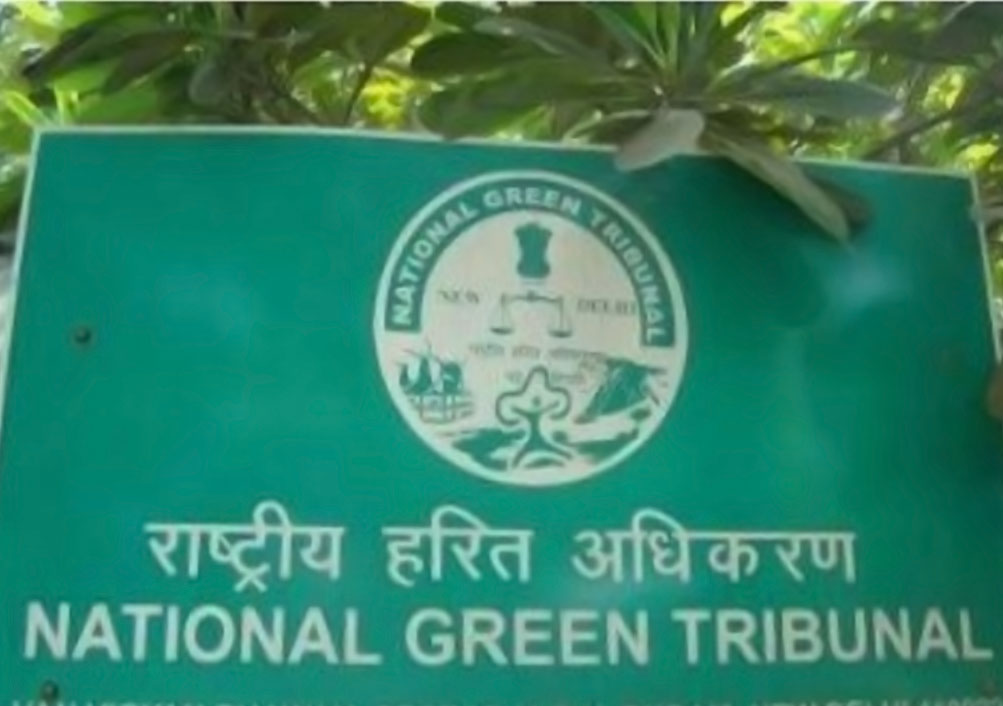NGT is vested with suo motu power in discharge of its functions under NGT Act, declares Apex Court

Read Judgment: Municipal Corporation of Greater Mumbai vs. Ankita Sinha & Ors
Pankaj Bajpai
New Delhi, October 8, 2021: The Supreme Court has declared that the National Green Tribunal (NGT) has the power to exercise Suo-Motu jurisdiction in discharge of its functions under the National Green Tribunal Act, 2010.
A Larger Bench of Justice Hrishikesh Roy, Justice A.M. Khanwilkar and Justice C.T. Ravikumar observed that the National Green Tribunal must act, if the exigencies so demand, without indefinitely waiting for the metaphorical Godot to knock on its portal.
“One could admit to the argument of danger of suo motu jurisdiction, if the NGT was acting outside its domain. But when it is legitimately working within the contours of its statutory mandate and with procedurals safeguards clarified above in play, the nature of the trigger itself viz. a letter or a ‘suo-motu’ initiation, cannot be the basis to curtail the role and responsibility of the specialized forum”, observed the Bench.
The background of the case was that the NGT noticed an article titled “Garbage Gangs of Deonar: The Kingpins and Their Multi-Crore Trade” in the online news portal, The Quint, which spoke of how mismanagement of solid waste had an adverse impact on the environment, public health and lives of individuals living in the vicinity of the dumping ground in Mumbai city.
Accordingly, the NGT took suo-motu cognizance of the article and directed that the article writer Ankita Sinha be the applicant in the case OA No. 510 of 2018, registered at the NGT’s instance.
Thereafter, steps were taken for inspection of the Deonar Dumping site by the representative of the Central Pollution Control Board, Maharashtra Pollution Control Board, the District Collector of the area and also the representative of the Municipal Corporation of Greater Mumbai (MCGM).
Pursuant to the Report of the inspecting team which highlighted that the landfill site failed to comply with the provisions of the Solid Waste Management Rules, 2016, the NGT noted that ‘damage to the environment and public health is self-evident’ and ordered MCGM to pay compensation to the tune of Rs. 5 crores.
In the meanwhile, the Supreme Court while entertaining the Civil Appeal No. 86/2019 of MCGM (MUNICIPAL CORPORATION OF GREATER MUMBAI v. ANKITA SINHA & ORS) , ordered stay on the operation of the order passed by the NGT and thereafter arranged for analogous consideration of the related cases where the common threshold jurisdictional issue arose on whether the NGT has the power to exercise suo-motu jurisdiction.
The Larger Bench found that the NGT was conceived by the Law Commission as a complimentary specialized forum to deal with all environmental multi-disciplinary issues both as original and also as an appellate authority, which complex issues were hitherto dealt with by the High Courts and the Supreme Court.
The long term and very often irreparable environmental damage which are expected to be arrested by the NGT, urge this Court to advert to what is termed as the ‘Seventh Generation’ sustainability principle, or the ‘Great Law of the Iroquois’ (as it originates from the Iroquois Tribe) which requires all decision making to withstand for the benefit of seven generations down the line, added the Bench.
Speaking for the Bench, Justice Roy said that the NGT, with the distinct role envisaged for it, can hardly afford to remain a mute spectator when no-one knocks on its door.
“The NGT Act, when read as a whole, gives much leeway to the NGT to go beyond a mere adjudicatory role. The Parliament’s intention is clearly discernible to create a multifunctional body, with the capacity to provide redressal for environmental exigencies. Accordingly, the principles of environmental justice and environmental equity must be explicitly acknowledged as pivotal threads of the NGT’s fabric. The NGT must be seen as a sui generis institution and not unus multorum, and its special and exclusive role to foster public interest in the area of environmental domain delineated in the enactment of 2010 must necessarily receive legal recognition of this Court”, opined the Larger Bench.
The forum itself has correctly identified the need for collective stratagem for addressing environmental concerns, and such a society centric approach must be allowed to work within the established safety valves of the principles of natural justice and appeal to the Supreme Court, added Justice Roy.
The Apex Court also reiterated that the hands-off mode for the NGT, when faced with exigencies requiring immediate and effective response, would debilitate the forum from discharging its responsibility and this must be ruled out in the interest of justice.
Accordingly, the Larger Bench concluded that it would be procedural hairsplitting to argue that the NGT could act upon a letter being written to it, but learning about an environmental exigency through any other means cannot trigger the NGT into action.
Sign up for our weekly newsletter to stay up to date on our product, events featured blog, special offer and all of the exciting things that take place here at Legitquest.




Add a Comment